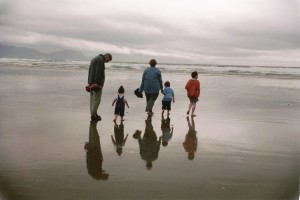 EMDR
EMDR
Eye Movement Desensitization and Reprocessing (EMDR) is recommended for adults and children exposed to psychological trauma and loss according to the new guidelines issued by WHO in August 2013. Learn More >
Cognitive Behavioural Therapy (CBT)
Every psychological theory attempts to understand how humans work by understanding the interconnection between their feelings, thoughts and behaviours. More recently, theories tend to include sensory experiences as well, as part of our normal interplay of experiences. Learn More >
Cognitive Rehabilitation Therapy (CRT) is the process of relearning cognitive skills that have been lost or altered as a result of damage to brain cells or brain chemistry. If skills cannot be relearned, then new ones have to be taught to enable the person to compensate for their lost cognitive functions. The CRT process typically comprises of four components: Learn More >
Clinical Hypnosis
We can all enter states of altered consciousness, and do, in fact, several times a day. We may drive all the way to work and then not remember much about the trip, we may be so focused on a special project that hours fly by. These trance-like states are natural states of heightened and focused attention – we call it hypnosis – and can be utilized for many purposes. Learn More >
Trauma Center Trauma-Sensitive Yoga (TC-TSY) was specifically developed at the Trauma Center in Brookline Massachusettes. It is typically a group intervention for adults affected by traumatic stress, which incorporates yoga principles and practices, however Megan Hughes uses it as an adjunct to her work with clients with PTSD. TC-TSY aims to support emotion regulation, stabilization, and skill building for adults with chronic, treatment-resistant posttraumatic stress disorder (PTSD); complex PTSD; dissociative disorders; and other related emotional and behavioral problems. Learn More >
Sand Tray Therapy
Sand Tray Therapy is an effective and immediate form of play therapy. The core of therapy using a sand tray is non-verbal and symbolic. Provided the therapist creates a safe and trusted space, children and adults play with sand, water, and a variety of figures over a period of time, constructing symbols of their inner world. Learn More >
Attachment Therapy
Issues of attachment can occur in children with their relationship with their caregiver is somehow puts them at risk. All children need a stable, safe, nurturing relationship connection with a trusted adult in order to foster the kind of connection that promotes their healthy growth and maturiation. With this positive attachment, children develop a sense of belonging, together, groundedness and safety that becomes a foundation for their self-esteem, self-image and relationship with the outside world. This is the foundation we take with us as we grow into functioning adults. Learn More >
Art Therapy
Megan uses art therapy with some of her younger clients. It is a powerful and more direct way to access emotions and memories that children may not be able to verbalize. Using artwork, children can express their deepest fears, feelings and wishes while feeling safe and in control of the process. There are specific techniques used to help facilitate children’s artistic expression, such as asking for specific content in the drawings, using different media such as plasticine, asking guiding questions about the artwork and maintaining a therapeutic connection throughout the process. Learn More >
Play Therapy
Play therapy, or therapeutic play, is a well-researched and empirically proven form of therapy for children. Research, both qualitative and quantitative, shows that it is highly effective in many cases. Recent research by “Play Therapy UK” suggests that 71% of the children referred to play therapy will show a positive change. Learn More >
Psychoneuroimmunology
Psychoneuroimmunology (PNI), is a relatively recent branch of science that enforces beliefs that physicians have held for many centuries. The premise is that a patient’s mental state influences diseases and healing. Specifically, PNI studies the connection between the brain (thoughts, mood), the nervous system (stress, emotion) and the immune system (disease, healing). PNI gives credibility to many long-held folk beliefs about the effect of the mind on disease and healing. PNI researchers look for the physical links that allow the immune system to respond to psychological factors, such as the will to live to a certain date. They look at the ways that mental states, such as hopelessness, can signal the immune system to lower the body’s defenses. Learn More >
Social Learning
Learn More >
Social Learning Theory believes that people learn from one another through observation, imitation and modelling. This theory has been thought of as a bridge between cognitive learning and behaviourist theories because it encompasses attention, memory and motivation. The founder of the theory, Alfred Bandura, also considered personality as an interaction between the environment, behaviour and psychological processes of the individual. Megan Hughes considers this theory foundational when working with clients to help them understand the source of their beliefs, thoughts, actions and even problematic impulses and unmet needs. Family or origin work is based on enhancing the positive influences from childhood and letting go of the problematic beliefs incorporated and integrated into the individual through social learning.
Counselling Vancouver
The Stillwater team is experienced and effective in providing a variety of counselling services. We offer counselling in Vancouver to children, adolescents and teens. We are proficient in knowing which counselling techniques work best with which conditions, either alone or in tandem with other techniques.
Contact us for a free consultation – Counselling Vancouver BC.
